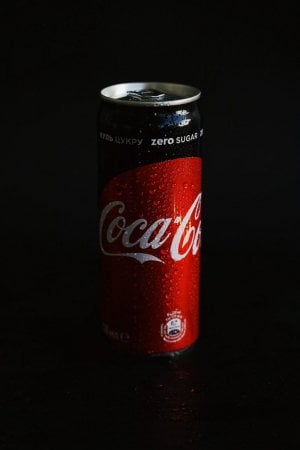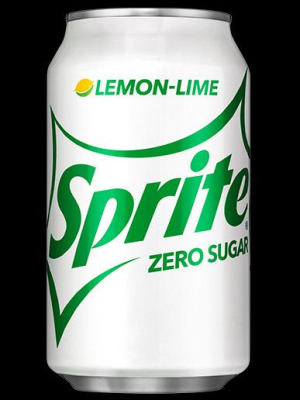SDC Rewards Member
Upgrade yours now
A
Fizzy, sweet, and calorie-free - but what does diet soft drink really do to your body?
We all know that drinking too much soft drink is bad for our health. It’s loaded with sugar, which can lead to weight gain, and has been linked to numerous other health problems like diabetes and heart disease.
So, it stands to reason that diet soft drinks must be the healthier choice, right? After all, they don’t have as much sugar or calories as their non-diet counterparts.
Unfortunately, it’s not that simple. Diet soft drinks may be ‘better’ for you in some ways, but they also come with their own unique set of risks. Here’s what you need to know about the effects of diet soft drinks on your body:
Pro: You may lose weight thanks to the lack of calories.
Several studies have shown that drinking diet soft drink instead of regular versions is linked to a reduction in body weight, body mass index (BMI), and percentage of body fat – especially among obese people. Another study found that people who drank 710 ml of diet soft drink daily for one year maintained a weight loss of up to 7 kg.
So if you're trying to slim down, cutting out those sugary beverages and replacing them with their calorie-free counterparts could give you the boost you need!
Con: You might gain weight
We know, we know; contradictory, right? There’s growing evidence that both sugar-sweetened and artificially sweetened beverages are linked to weight gain. A meta-analysis in 2017 found that consuming 5% to 6% of daily calorie intake from non-nutritive sweeteners could lead to up to 54% increased risk of weight gain.
This means that you need to watch out because even if diet soft drink is linked to weight loss and good health, it could still disproportionately impact you over time.
'As with most things, moderation is key… Although usually not the most nutritious choice, consuming diet soft drink in appropriate amounts is safe, and there are health benefits to consuming zero calories and sugars,' says Justine Rosado, a registered dietitian nutritionist and certified diabetes care and education specialist with The Nutrition Queens.
Experts say that people who have diabetes but like regular soft drinks may find the ‘diet’ versions to be a good option. 'Used in appropriate amounts, diet soft drinks are a safe way to enjoy a sweet-tasting beverage while keeping blood sugars stable,' says Rosado.
Pro/Con: Your tongue will adjust to the sweet flavour
It takes some getting used to consuming artificial sweeteners such as aspartame (Equal) and Sucralose (Splenda) but it can be done!
But, you guessed it, that can also be a con. 'The sweet taste of these artificial sweeteners can change the preferences to other sweeter foods, especially with an innate preference to sweet foods during development,' a study in The Permanente Journal said.
Con: The artificial sweeteners could increase your risk of cancer
Now, this is a con if ever we’ve heard one. According to research published in PLOS Medicine in March 2022, the artificial sweeteners often found in diet options could be raising our risk of developing cancer. The research suggests, ‘a positive association between higher intake of artificial sweeteners (especially aspartame and acesulfame-K) and overall cancer risk. More specifically, aspartame intake was associated with increased breast and obesity-related cancers.’
The two largest soft drinks producers in Australia, Coca-Cola Amatil and Schweppes Australia, use artificial sweeteners 950 (acesulfame-K) and 951 (aspartame) in all of their diet soft drinks.
Pro: It may help you manage your blood sugar levels
Although sugar-sweetened drinks are definitely linked to significant spikes in blood sugar, it’s still unclear whether or not diet soft drinks have the same effect.
'Because diet soft drink isn't sweetened with sugar, it doesn't cause a blood sugar spike. It's a good choice if you are watching your calories and need a sweet drink,' Lauren Manaker, MS, RDN, LDN explains.
Con: You may end up with weaker bones
There is evidence that soft drinks – regardless of whether they are diet or sugar-sweetened – are linked to lower bone mineral density. Additionally, one study suggested that the consumption of soft drinks is linked to an increased risk for osteoporosis and bone fractures.
The best bone health practices include not only strength training but also a healthy diet, 'including calcium-rich, vitamin D-fortified foods and avoiding stimulants like soft drink, coffee with sugar, and energy drinks’, Lauren says.
Pro/Con: You may feel more energised
'Many diet soft drinks contain caffeine, which can give people a boost when they are feeling sluggish,' Manaker says. However, these drinks can have a negative effect if you consume them late in the day because they may keep you awake.
So there you have it, members. There’s no conclusive evidence yet but as always, moderation is key. Do you prefer regular or diet soft drinks? I’m partial to Pepsi Max but this research may have scared me off it!







